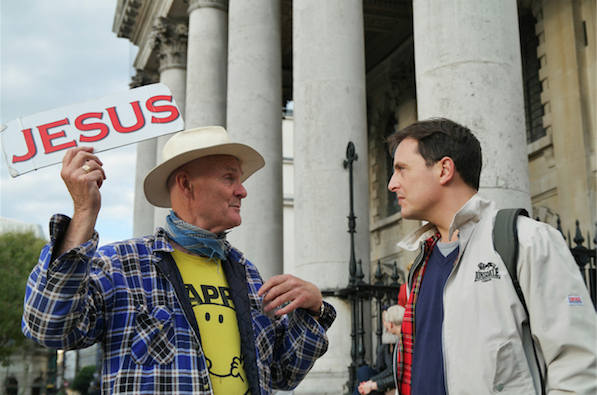Gen Z shows the way: Why evangelism doesn't have to be a battle
There are, I think, some quite interesting angles to the Hodder survey which finds that Gen Z (and that's definitely a Zee, not a Zed, I'm told) are quite positive about faith. A fifth of them will go to church once or twice a year, not counting weddings and funerals; altogether nine per cent are 'regular churchgoers', though that level of frequency hardly indicates much evangelical fervour. Churchgoing is even higher among the slightly older generation, at 11 per cent for 25 to 34-year-olds. And perhaps more significant is the fact that they don't seem to mind about religion. While they say being an atheist or non-religious is more 'normal' (naturally – that's just an observation, not a value judgment) they don't seem to be bothered one way or the other.

We shouldn't read too much into this, of course. In spite of the cool churches like London's HTB and the CofE's attempts to replicate its success with flagship projects in Swindon (a converted railway workshop), Bristol (reopening an ancient city centre church in the buzzy market area) and Birmingham (Gas Street church, smack in the middle of everything), most younger people are indifferent to what the church has to offer. However, indifference is not hostility, and that's rather important.
There's a narrative in some quarters of evangelicalism that sees faith as fundamentally antagonistic to unfaith. Christians' engagement with non-Christians is – so the assumption goes – an oppositional one: we are right, they are wrong, and it's all about converting them to the correct way of looking at the world. Successful evangelism is about winning arguments.
There are whole apologetics ministries based on this idea. Faith, in this view, is propositional; it's made up of statements about truth and reality. If you're not for us, you're against us, and you haven't really 'arrived' unless you've prayed the sinner's prayer and seen the error of your ways.
Well, that's not entirely wrong. A content-free Christianity is not really Christianity at all. But this antagonism model means Christians go out loaded for bear, expecting to meet hostility and rejection – and all too often, armed with answers to questions people aren't actually asking.
There are, of course, plenty of people still who are militantly atheist, though the New Atheism of people like Richard Dawkins isn't getting the traction that it did. And it provokes just that sort of response from militant Christians. There are large numbers of people, however, who don't identify with either ideological wing – and, counter-intuitively, many of them are found in Gen Z.
There is, surely, a better way (and Krish Kandiah's excellent book Faitheism, the occasion for the survey, is an attempt to find it). Dropping the antagonism model doesn't mean we have to be less Christian, or less evangelical, or less committed to helping people experience the fullness of Christ. It just means recognising that there's far, far more common ground between us than the militants on both sides want us to think, and that conversations can be usefully had without a conversion agenda.
And this survey shows that a lot of people might be far more open to a conversation than we might have assumed. We don't have to be prickly or defensive about faith. We do, however, have to demonstrate integrity and character. We have to be respectful and interested – and we have to be interesting, a rather harder challenge.
Let's be honest, Christians – if we are at all orthodox – believe some very odd things. But before people encounter our oddities, they should be encountering us.
Mark Woods is the author of Does the Bible really say that? Challenging our assumptions in the light of Scripture (Lion, £8.99). Follow him on Twitter: @RevMarkWoods











